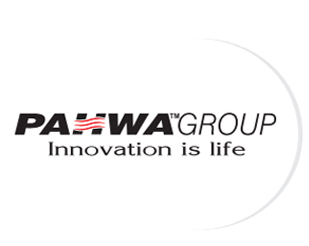Deepesh Upadhyay, AVP, Delair India
The Indian pharmaceutical industry is poised to grow at a phenomenal rate. Renowned across the globe as the ‘pharmacy of the world,’ the country serves as a significant exporter of pharmaceutical products to more than 200 nations. Therefore, in order to retain the credibility of the industry, there is an incessant need to continuously innovate and enhance the manufacturing process to produce superior quality drugs and medicines that invariably conform to international standards.
In order to manufacture pharmaceutical products of the highest quality, it is the need of the hour that the industry adheres to strict hygiene standards.
As part of the process, the sector should proactively work towards mitigating the pervasive issue of moisture that severely impairs the quality of the products. Before delving deeper into the topic, it is imperative to understand that compressed air finds vital application in the pharmaceutical industry, which is responsible for powering the various pneumatic processes required during the processing, manufacturing, and packaging of the products.
Compressed air plays a crucial role in various manufacturing processes within the pharmaceutical industry, ranging from mixing and granulation to drying, pressing, coating, and packaging. As a result, it comes into contact with the products at every stage of production. It is an indispensable requirement at the time of tablet and capsule manufacturing to give the right texture, color, and flavor to the end product. Along with this, it aids in a wide gamut of processes entailing mixing powder, producing granules for tablet pressing, and coating or encapsulation of the tablets. Likewise, compressed air oversees accuracy in the balance of ingredients and bodes well for precise measurement of each formula in liquid medicine. Gauging that numerous processes depend on compressed air it is discernible that it is an inevitable requirement of the pharma industry.
Having elaborated on the significance of compressed air, it is imperative to understand that the presence of moisture in the pressurized air can sabotage the entire manufacturing process of the pharma industry. Acting as a major deterrent, it comes with the ability to meddle with the tablet compressing and coating processes. At the time of tablet manufacturing, the powdered material is molded into a tablet in a completely dry state under high pressure. But here even the slightest trace of moisture can give rise to lumping and caking issues in powder considering that various materials used in the medicine are highly hygroscopic in nature. The tendency of the materials to attract moisture can have a destructive impact on the medicines. Causing the failure of the entire tableting process, it can even lead to the decomposition of the drug, thereby deteriorating its medicinal value.
Furthermore, during the spray coating of tablets, moisture in compressed air can significantly change the color, taste, and smell of the end products. It can give rise to blistering in tablets which is responsible for breakage issues. In addition to this, moisture can account for uneven coating resulting in the production of inferior quality products owing to non-uniform coating. Consequently, all the factors together can severely induce the revocation of the entire batch of tablets from the market which can impede the growth of the industry.
Apart from yielding inferior quality tablets, compressed air laden with moisture can disrupt the smooth functioning of pneumatic tools and machines essential for carrying out the manufacturing process. Moisture contributes to corrosion in various components such as pipes, pneumatic cylinders, fixtures, and other components that provide resistance to the completion of operations. Here, corrosion is responsible for the sluggish and inconsistent performance of the pneumatic valves and cylinders. The situation gets further complicated during cold weather accounting for freezing issues in the equipment. All the factors together can incur heavy loss for the company as the malfunctioned pneumatic machines prolong the downtime of the manufacturing process, invariably leading to high maintenance costs.
Therefore, the industry should intensively focus on providing quality compressed air that is devoid of even the slightest trace of moisture and any other form of contaminants. This will play a crucial role in complying with the hygiene standards recommended by the Food and Drug Administration (FDA). Therefore, to effectively check the moisture menace, the industry should deploy compressed air dryers to thoroughly treat the air that is free from contaminants such as moisture/water, oil vapors, dust particles, or any form of solid contaminants. Enabling smooth completion of pneumatic processes, it ensures timely manufacturing of the highest quality pharmaceutical products.
Here, the dryers make use of desiccant-based drying technology to carry out processes that require dry compressed air while achieving the best atmospheric dew point temperature of (-40°C) to (-70°C) max. The desiccant on pressure swing principle/purge air regenerates the desiccant bed by adsorbing and desorbing the water vapor.
Understanding the increasing global demand for Indian pharma products, it is imperative that the industry scales the manufacturing process both quantitatively and qualitatively to meet the demand projected in the international as well as the domestic market.






